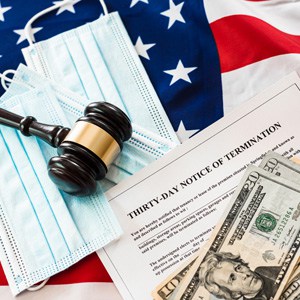 1031 Exchange In A Florida Real Estate Transaction
1031 Exchange In A Florida Real Estate Transaction
For more sophisticated investors, we can advise and administer a 1031 Exchange. This type of transaction received preferential tax treatment under Internal Revenue Code Section 1031, which in part states:
“No gain or loss shall be recognized if property held for productive use in a trade or business or for investment is exchanged solely for property of like-kind.”
In essence, an investor using IRC Section 1031 can exchange an investment property (non-primary residence) for another investment property and defer the taxable gains on the sale.
Examples of like-kind investment properties include: second homes, rental properties, duplexes, commercial properties, vacant land, farms, etc…
Feel free to contact us for more information regarding the sale of an investment property or non-primary residence.
What Are 1031 Exchanges?
A 1031 exchange is a unique transaction designed to defer capital gains tax on the sale of an investment property. Named after its section in the IRC (Internal Revenue Code), it is a tool that allows investors to defer (delay) paying any profits on their investment, so long as those profits are used in the purchase of another real estate investment property of the same kind.
This can be done potentially indefinitely, and there is no limit to how frequently a 1031 exchange can be done either. Just so long as the profits from the sale of the investment property are then used to purchase a like-kind property within a certain amount of time from the closing of the initial property sale.
During that specific timeframe, the profits from the initial sale are held by a third party, in escrow, as you are not allowed to receive them at all if you want to benefit from the 1031 exchange tax break. They can only be used towards that new “like-kind” purchase or else it becomes income susceptible to the capital gains tax.
The same thing can occur if the new property you buy is significantly less valuable/worked than the first, for example when exchanging a plot of land with an apartment built on it, for a yet unworked plot of land. This may lead to depreciation recapture, which can be considered ordinary taxable income as well.
The complexities and nuances of 1031 exchanges, as well as the costs of even minor errors or oversight, are why you should only attempt one with the assistance of experienced real estate attorneys.
What Properties Qualify For A 1031 Exchange?
The properties that would qualify for a 1031 exchange would be…
- Commercial,
- Residential buildings with more than five units, and
- Individual homes or units that are used for investment purposes.
Primary homes are not eligible for a 1031 exchange.
How Do I Choose A Facilitator?
When you’re ready to choose a facilitator for a 1031 exchange, your real estate attorney will be able to advise you on who to choose. Many attorneys have facilitators that they use exclusively and, often, they are a national company.
What Are The Time Requirements In An Exchange?
The time requirements for a 1031 exchange are…
- 45 days from closing to identify three like-kind properties, and
- 180 days from closing to close on a like-kind property.
More Information
- Everything You Need To Know About Escrow In Florida
- What A Closing Attorney Handles During The Real Estate Process
- A Closing Attorney’s Function In Ensuring A Smooth Closing
It’s essential that you act as soon as possible when you know you want to do a 1031 exchange because there are no extensions available to these time constraints. For more information on 1030 Exchange In A FL Real Estate Transaction, an initial consultation is your next best step.
Call For A Consultation
(305) 335-3407